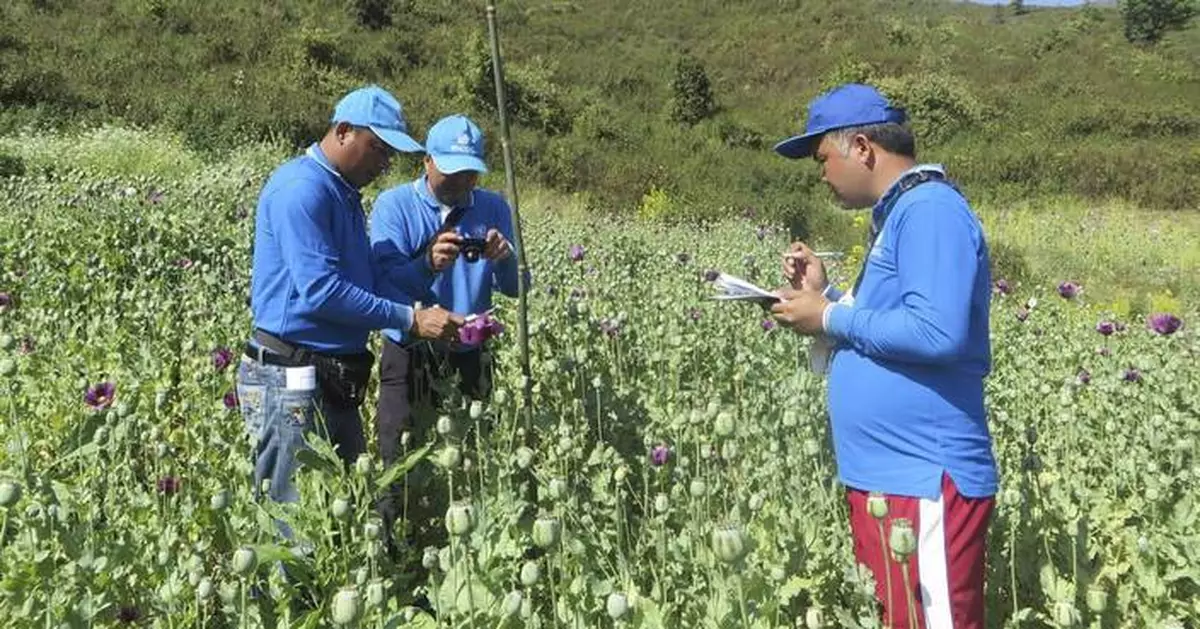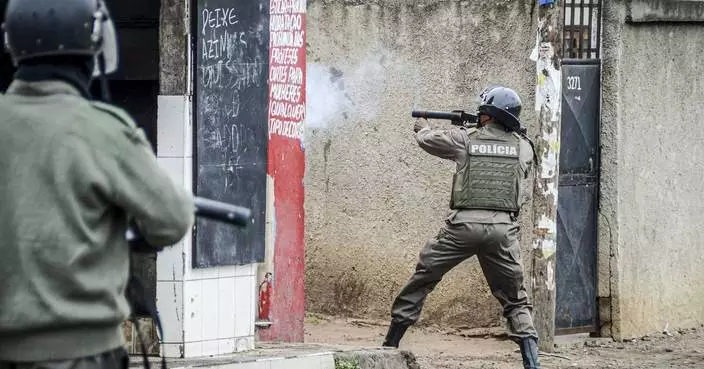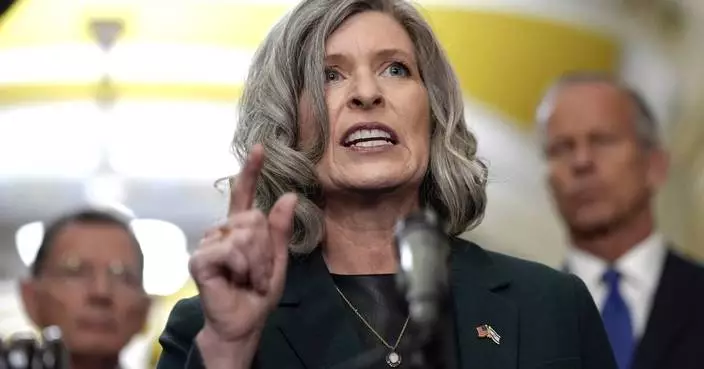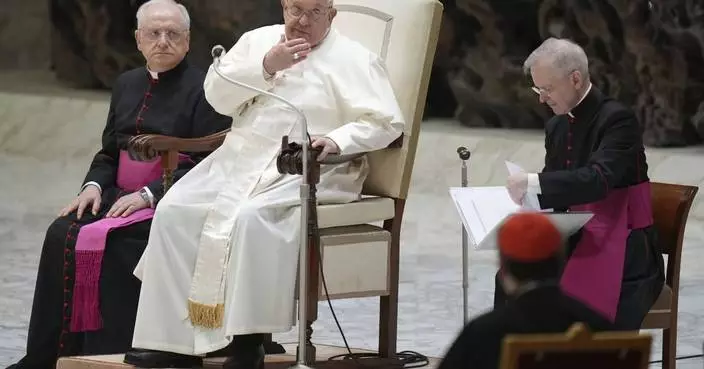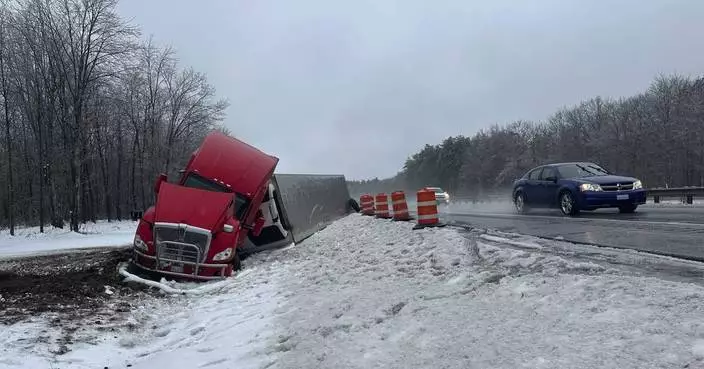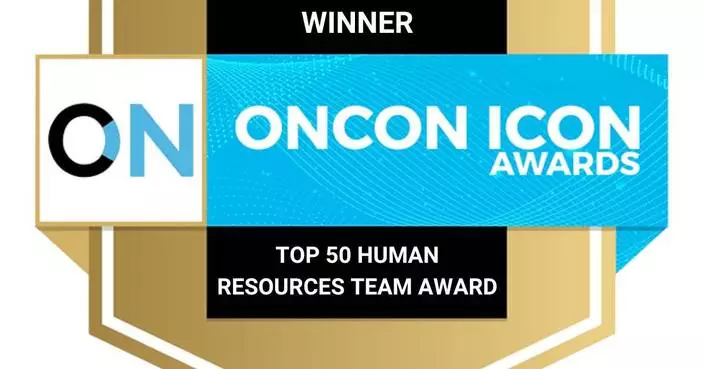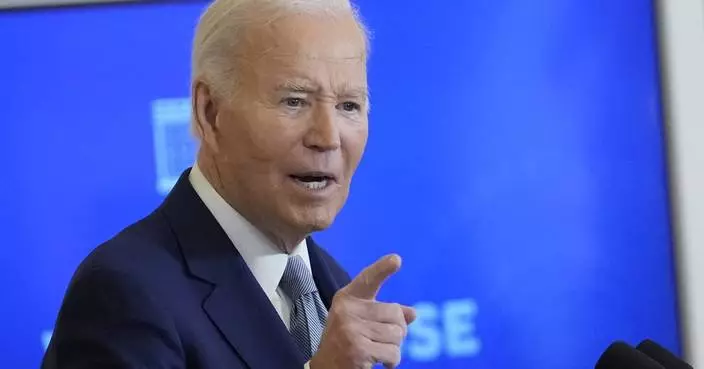BANGKOK (AP) — There has been a slight drop in the production of opium in Myanmar, the world’s biggest source of the illicit drug from which heroin is derived, experts from the United Nations said Thursday, while warning of strong prospects for future expansion of the deadly trade.
The Myanmar Opium Survey 2024 issued by the United Nations Office on Drugs and Crime says that after three consecutive years of growth, the area where opium is cultivated fell by 4% to 45,200 hectares (111,700 acres) and production decreased by 8% to 995 metric tons due to a 4% decline in opium yield.
UNODC announced last year that Myanmar had overtaken Afghanistan to become the world’s top opium producer, saying a ban imposed by the ruling Taliban after its 2021 takeover led to a 95% drop there in opium cultivation. Opium, the base from which morphine and heroin are produced, is harvested from poppy flowers.
Meanwhile, Myanmar registered growth in cultivation and production from 2021 through 2023, which UNODC attributed largely to
fostered by the crisis that arose after its army ousted the elected government of Aung San Suu Kyi in February 2021. Resistance to the takeover has led to what is now a civil war.
Many farmers who had left opium behind during the period of relative stability before the military takeover returned to growing opium, Masood Karimipour, UNODC Regional Representative for Southeast Asia and the Pacific, said at a press briefing about the survey, which utilized both on-the-ground investigations and satellite surveillance.
The consequences of the supply shakeup remain unclear, UNODC experts said.
“We believe that at the moment the global supply chain for heroin has not been fully adjusted,” said Inshik Sim, a UNODC Research Officer, “And there is an implication that because there is a lack of heroin at the global level, somebody has to fill the markets and that may push the Myanmar opium poppy farmers to increasingly engage in opium poppy cultivation.”
In 2024, however, UNODC says the fighting at the heart of the instability intensified so much that it may have constrained production, due to factors including displacement and restrictions on movement, as appears to be the case in the opium-producing regions of Shan and Kachin in eastern and northern Myanmar.
That does not necessarily mean production has plateaued, said the U.N. experts.
“Troublingly, we are seeing indicators that the expanding and intensifying conflict in Myanmar is also a growing concern,” said Karimipour. ”So as the situation in Myanmar remains volatile and as the governance and humanitarian crises there continue, we may again see more people pushed into opium cultivation.”
“And we also note that the farmers have reported to us that their number one reason is just to put food on the table and that economic need will continue to intensify and worsen. So we don’t predict an alleviation in the motivation to continue to grow opium.”
"It’s very important for the international community to do what it can to support farming communities, to build resilience outside the opium economy, as the push factors that we’ve just discussed will continue," Karimipour said, adding that, “and it’s important to continue monitoring the situation in both Myanmar and Afghanistan as it relates to the global heroin supply chains.”
Northeastern Myanmar is part of the infamous “Golden Triangle,” where the borders of Myanmar, Laos and Thailand meet. The production of opium and heroin historically flourished there, largely because of the lawlessness in border areas where Myanmar’s central government has been able to exercise only minimum control over various ethnic minority militias, some of them partners in the drug trade.
In recent decades, after the region’s opium production had dropped, methamphetamine in the form of tablets and crystal meth supplanted it. It’s easier to make on an industrial scale than the labor-intensive cultivation of opium, and gets distributed by land, sea and air around Asia and the Pacific.
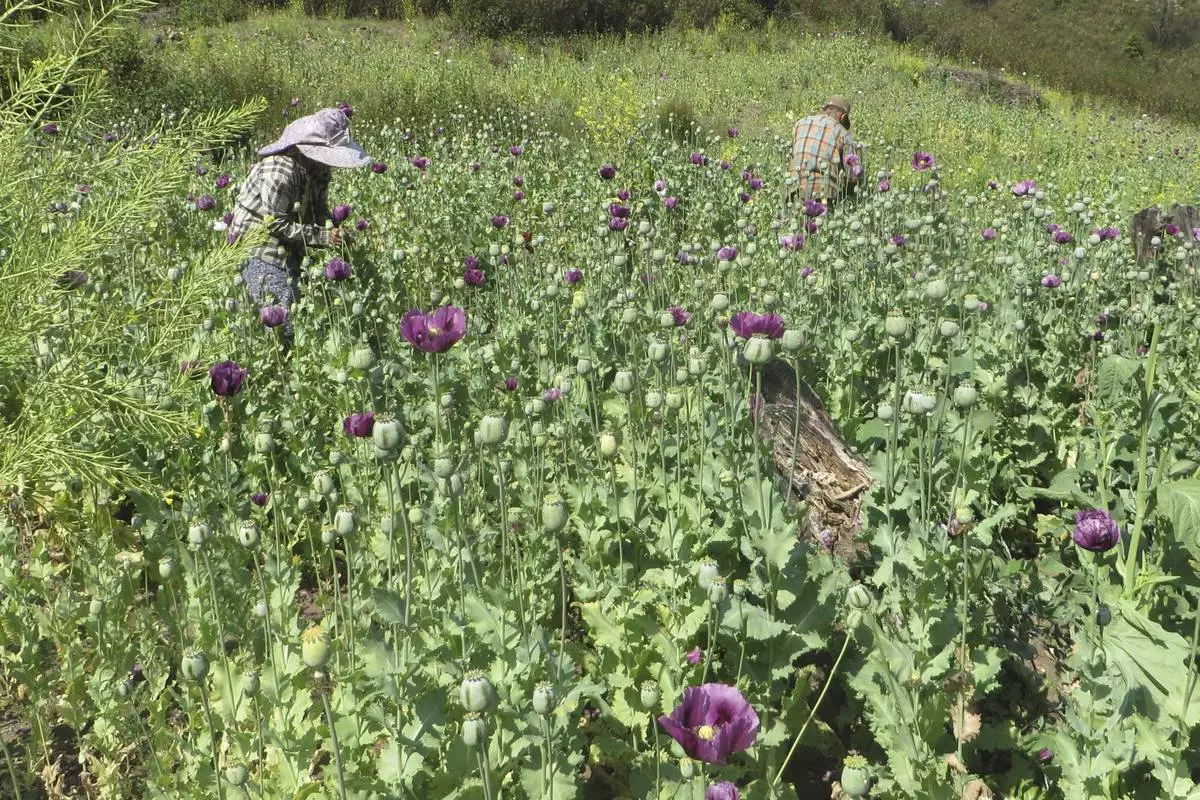
In this undated photo made available Thursday, Dec. 12, 2024 by the United Nations Office on Drugs and Crime (UNODC), workers collect opium gum in a poppy field in Shan State, Myanmar. (UNODC via AP)
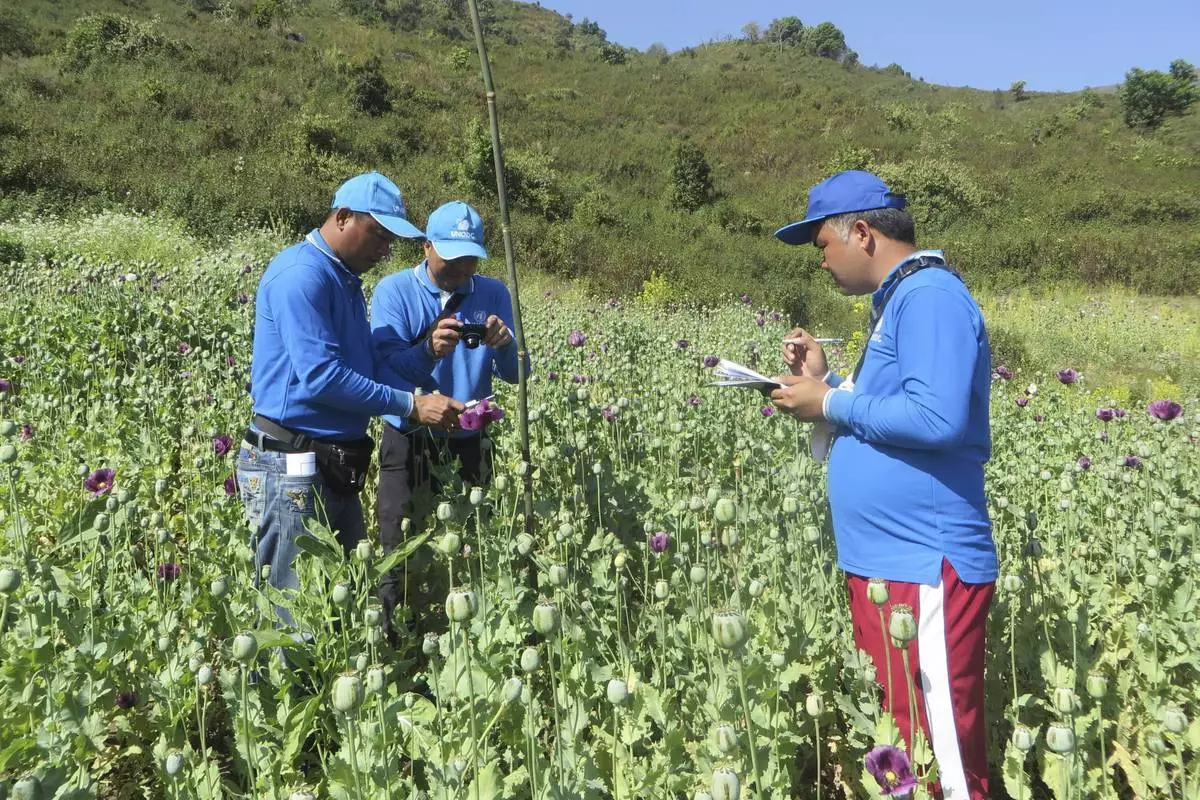
In this undated photo made available Thursday, Dec. 12, 2024 by the United Nations Office on Drugs and Crime (UNODC), workers collect opium gum in a poppy field in Shan State, Myanmar. (UNODC via AP)
BRUSSELS (AP) — European Union ministers on Thursday agreed to let Bulgaria and Romania fully integrate into Europe’s ID-check-free travel zone, known as the Schengen area, by lifting land border controls from next year, the EU's Hungarian presidency said.
Bulgaria and Romania joined the Schengen area in March after years of negotiations, providing free access for travelers arriving in both countries by air or sea.
However, land border checks remained in place due to opposition, chiefly from Austria, over concerns that the two countries were not doing enough to prevent migrants from entering without authorization.
“Interior ministers have just adopted a decision to lift internal land border controls with and between Bulgaria and Romania,” the Hungarian presidency posted on X. “A great victory for Bulgaria, Romania, and all of Europe!” Land border checks will end from Jan. 1.
Romania’s Prime Minister Marcel Ciolacu said the decision would be a “major benefit” to his country’s economy and enable “faster journeys home for the millions of Romanians” living and traveling within the Schengen area.
Freedom of movement is central to European integration. More than 420 million people live in the Schengen area, and their freedom to move across borders helps businesses and tourism to flourish.
Romanian President Klaus Iohannis called it a “natural and necessary step” that will significantly reduce wait times at borders, lower logistical costs for businesses, and attract foreign investors.
“Schengen membership has been a strategic objective for our country,” he said in a statement. “Over time, there have been numerous obstacles, despite Romania’s technical readiness to meet Schengen standards for many years.”
He added that Romania would “continue to act responsibly to protect and strengthen the EU’s external borders” to manage illegal migration.
The Schengen Area was established in 1985. Before Bulgaria and Romania’s partial admission, it was comprised of 23 of the 27 EU member countries, along with Switzerland, Norway, Iceland and Liechtenstein. Around 3.5 million people cross an internal border each day.
Economists from the Bulgarian Academy of Sciences calculated that with the decision, the total positive financial effect for Bulgaria would amount to 800 million euro ($840 million) per year.
Bulgarian Interior Minister Atanas Ilkov said it was “a historic day for Bulgaria, for Bulgarian citizens, for Bulgarian businesses, for the government.”
“This is a well-deserved result of all our efforts over the past years, efforts made by all employees of the ministry of internal affairs,” he said. “These efforts included physical security at the Bulgarian-Turkish border, using all available resources.”
Ilkov added that last week, “colleagues dismantled yet another organized criminal group involved in illegal migration” and that random checks at the Bulgarian-Turkish border will continue.
On Thursday at Bulgaria’s Kulata border checkpoint with Greece, known for its huge traffic jams for trucks and tourists, most drivers hailed the decision.
Nazum Kasumov, a 61-year-old truck driver, told The Associated Press that full Schengen accession "should have happened a long time ago. "We usually queue here for two days,” he said, adding that drivers face similar lengthy delays at other checkpoints.
“If there’s no border check that will save a lot of nerves (and) delays," said Nikolay Iliev, another truck driver waiting at Kulata. “We are fully accepted in Schengen, and that makes me very happy.”
The Schengen area is one of the main achievements of the European project. It started as an intergovernmental project between five EU countries — France, Germany, Belgium, the Netherlands and Luxembourg — and has gradually expanded to become the largest free travel area in the world.
However, several Schengen member countries, including the Netherlands, Austria and Germany, this year reinstated some land border checks, over concerns ranging from migration to security. Some EU officials warned the reimposed checks could undermine the scheme’s goals.
—
McGrath contributed from Sighisoara, Romania; Veselin Toshkov from Sofia, Bulgaria; and Valentina Petrova from Kulata, Bulgaria.
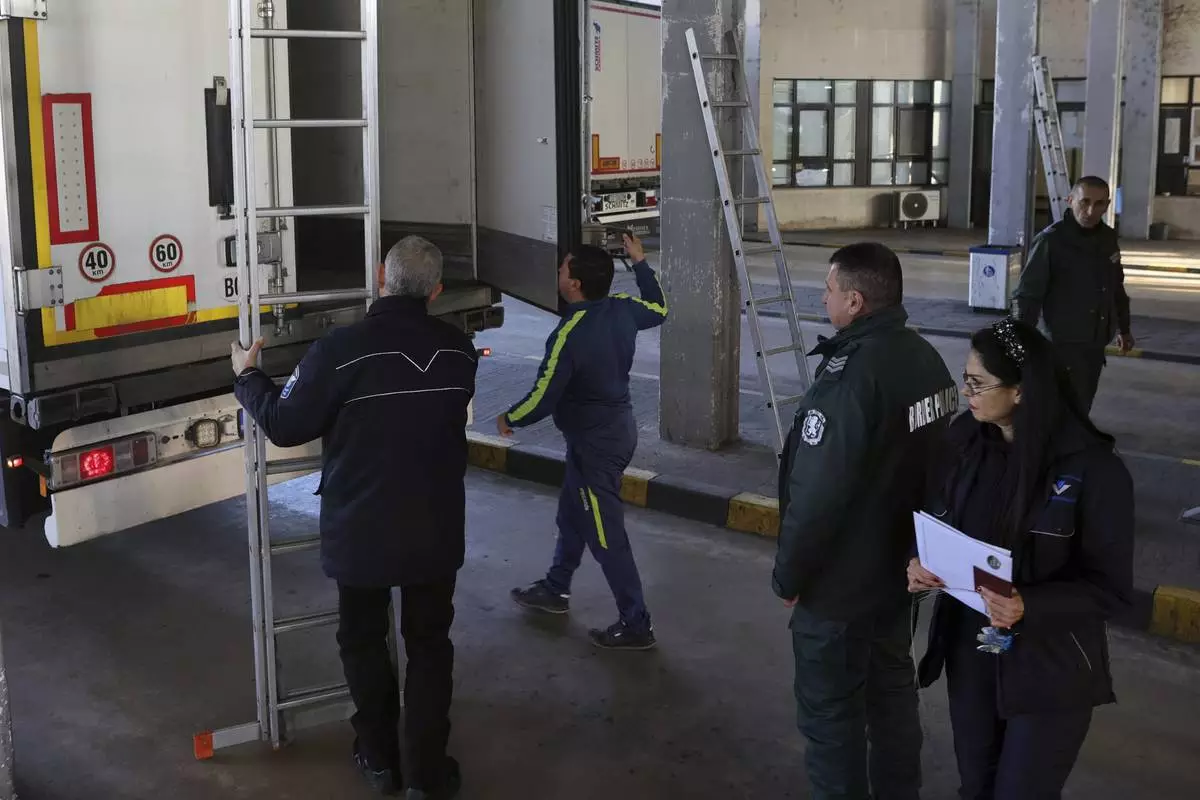
Border police officers and Bulgarian Customs' employees carry out checks at the Bulgarian-Greek border checkpoint of Kulata in Bulgaria, Thursday, Dec. 12, 2024, after European Union ministers agreed to let Bulgaria and Romania fully integrate into Europe's ID-check free travel zone, known as the Schengen area, by lifting land border controls from next year. ( AP Photo/Valentina Petrova)
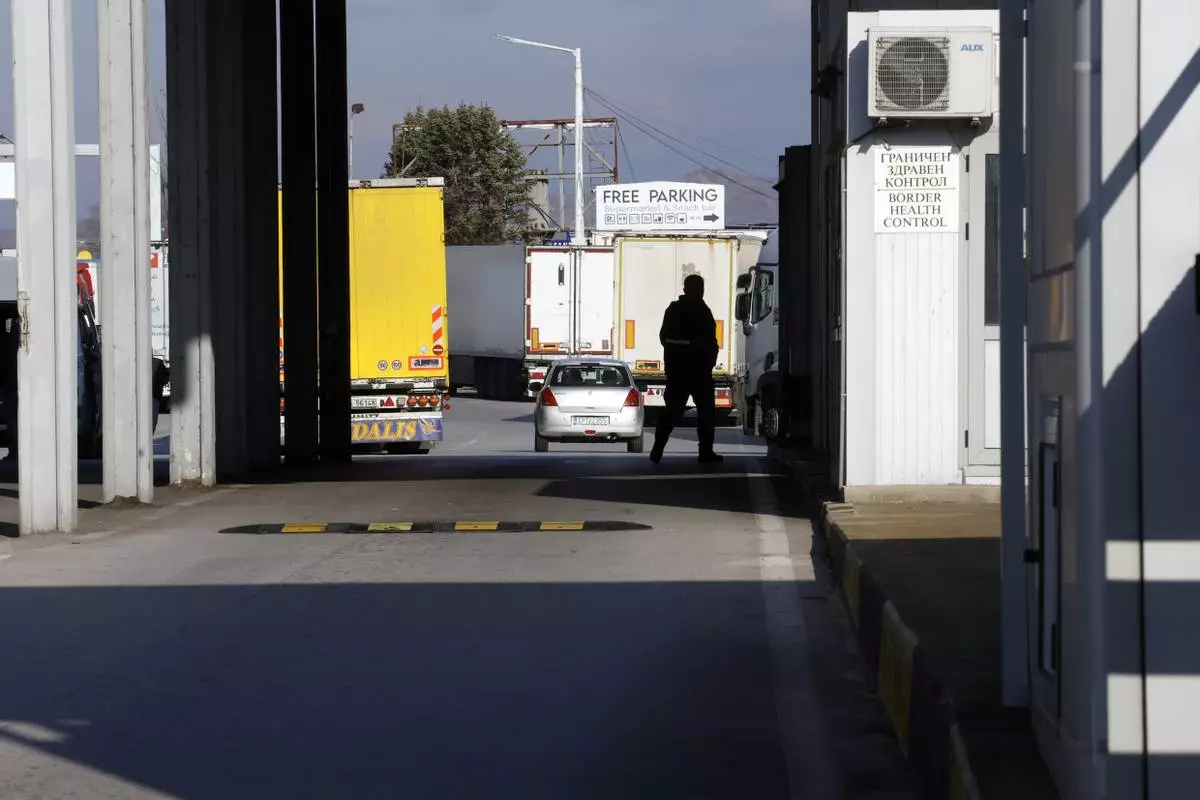
Trucks wait in line at the Bulgarian-Greek border checkpoint of Kulata in Bulgaria, Thursday, Dec. 12, 2024, after European Union ministers agreed to let Bulgaria and Romania fully integrate into Europe's ID-check free travel zone, known as the Schengen area, by lifting land border controls from next year. ( AP Photo/Valentina Petrova)
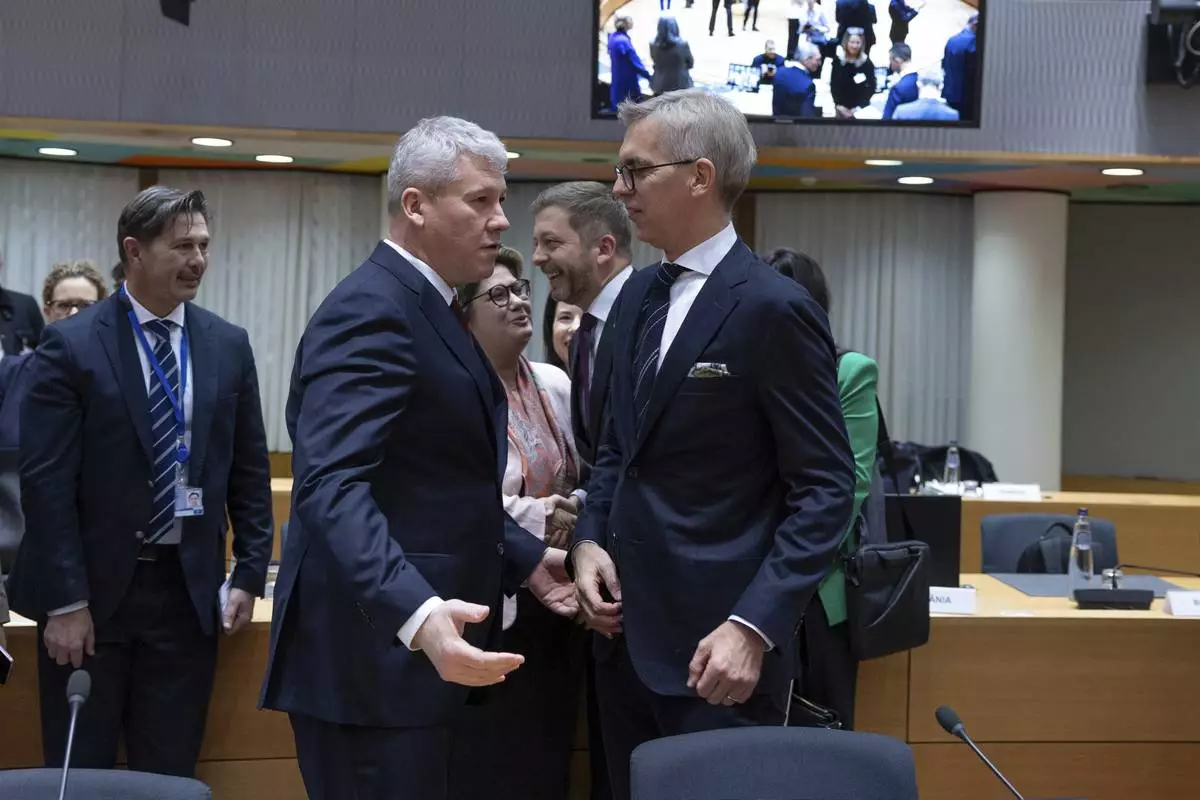
Romanian Minister of Home Affairs Catalin Predoiu, left, speaks with Luxembourg's Interior Minister Leon Gloden during a round table meeting of EU justice and interior ministers at the European Council building in Brussels, Thursday, Dec 12, 2024. (AP Photo/Omar Havana)
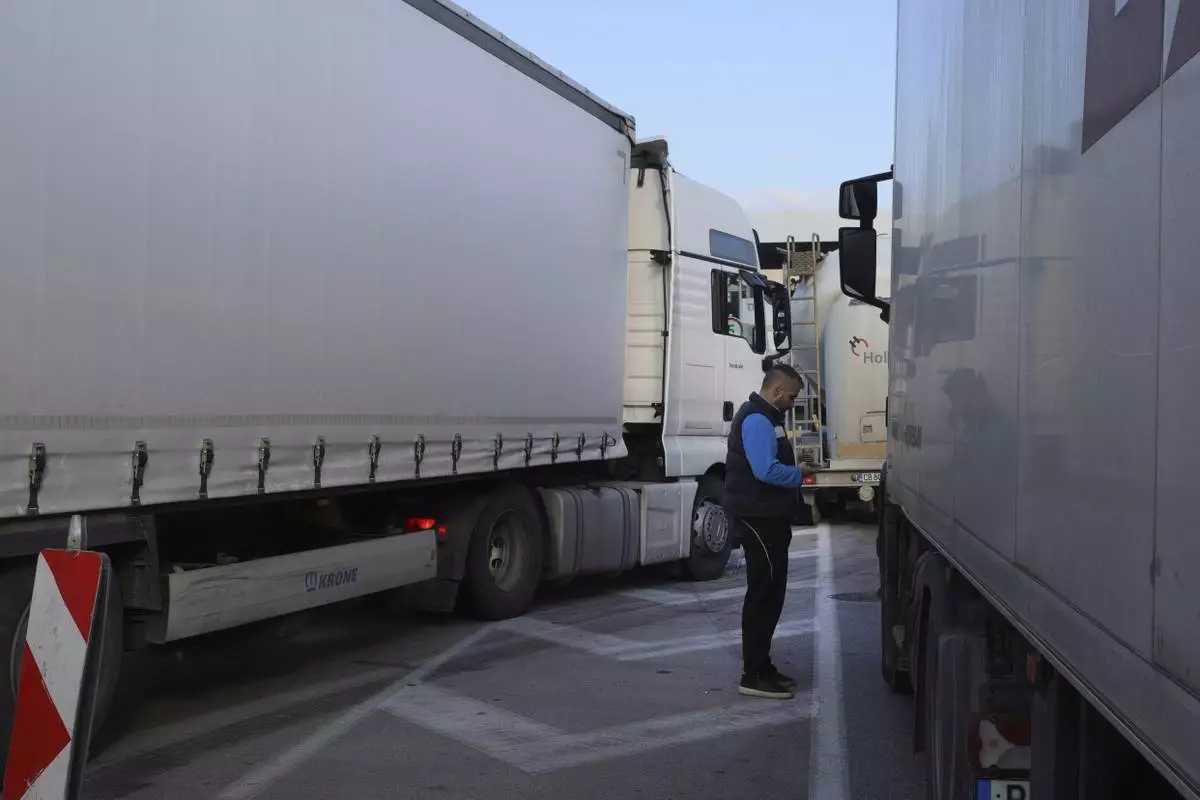
Truck driver stands next to vehicles waiting in line at the Bulgarian-Greek border checkpoint of Kulata in Bulgaria, Thursday, Dec. 12, 2024, after European Union ministers agreed to let Bulgaria and Romania fully integrate into Europe's ID-check free travel zone, known as the Schengen area, by lifting land border controls from next year. ( AP Photo/Valentina Petrova)
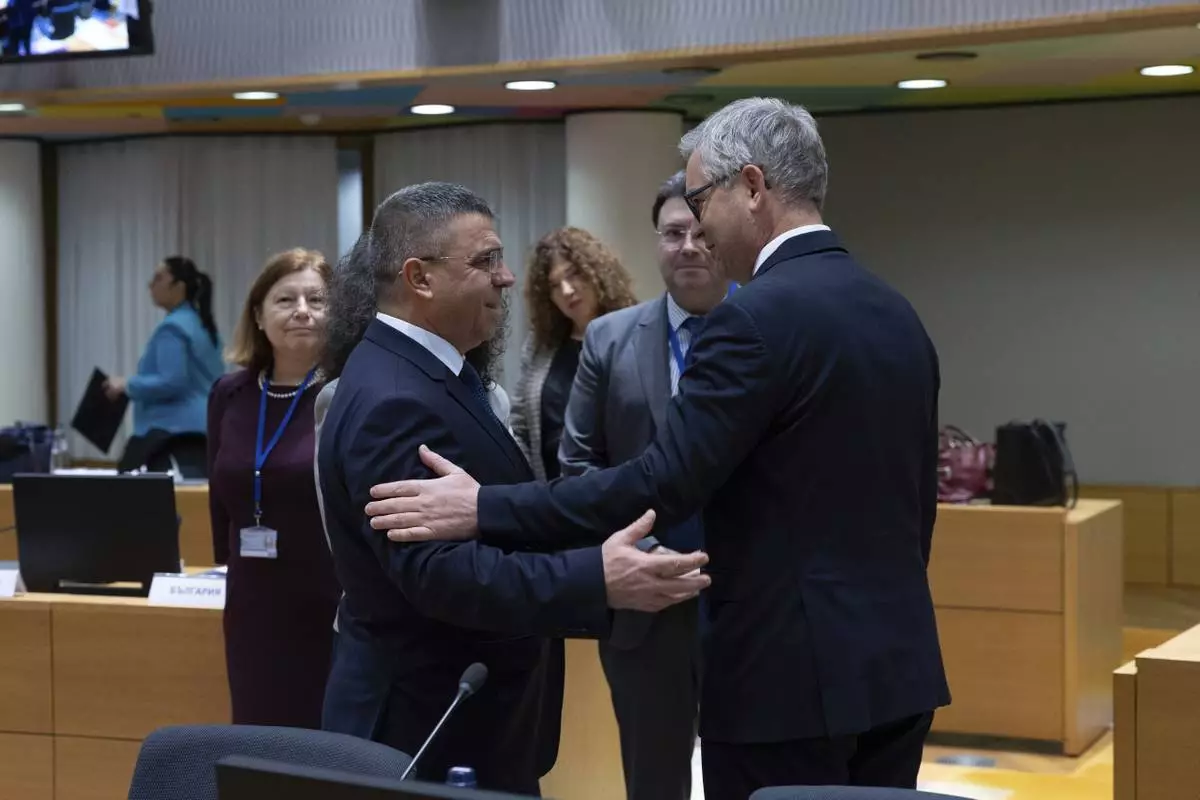
Bulgaria's Interior Minister Atanas Ilkov, left, speaks with European Commissioner for Internal Affairs and Migration Magnus Brunner during a round table meeting of EU justice and interior ministers at the European Council building in Brussels, Thursday, Dec 12, 2024. (AP Photo/Omar Havana)
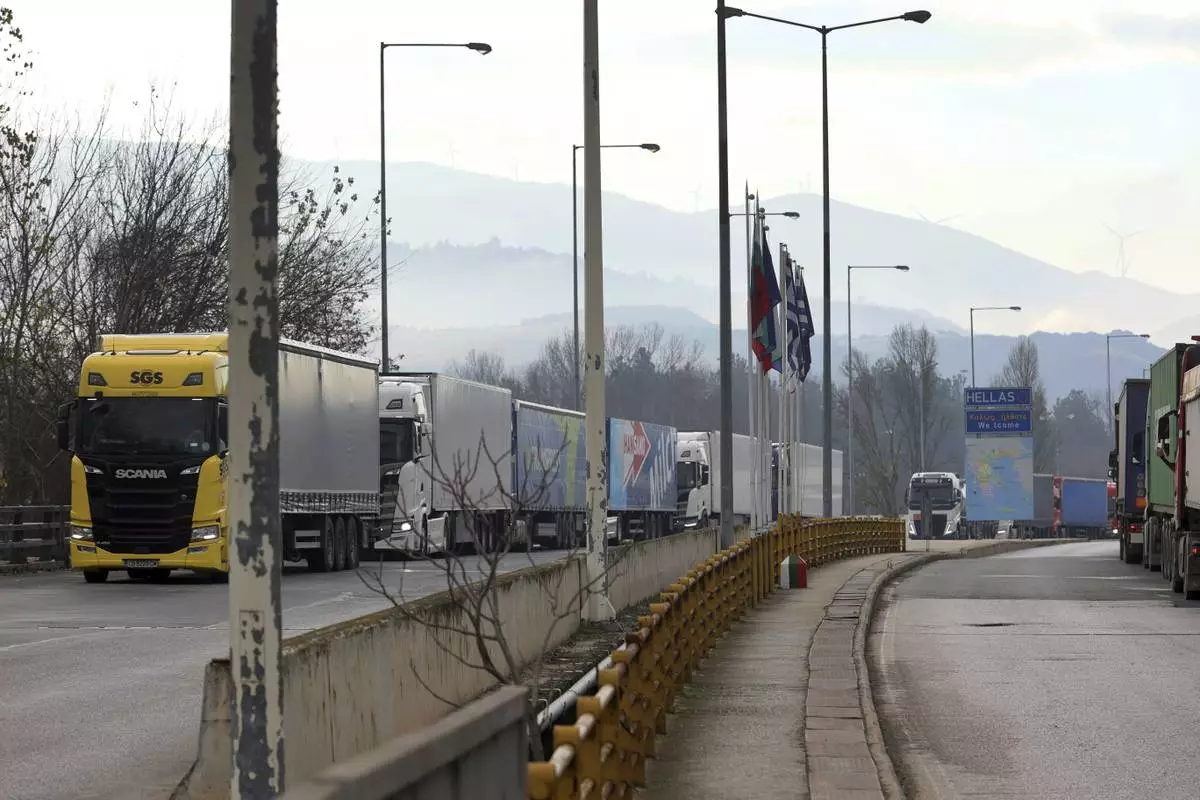
Trucks wait in line at the Bulgarian-Greek border checkpoint Kulata in Bulgaria, Thursday, Dec. 12, 2024. (AP Photo/Valentina Petrova)
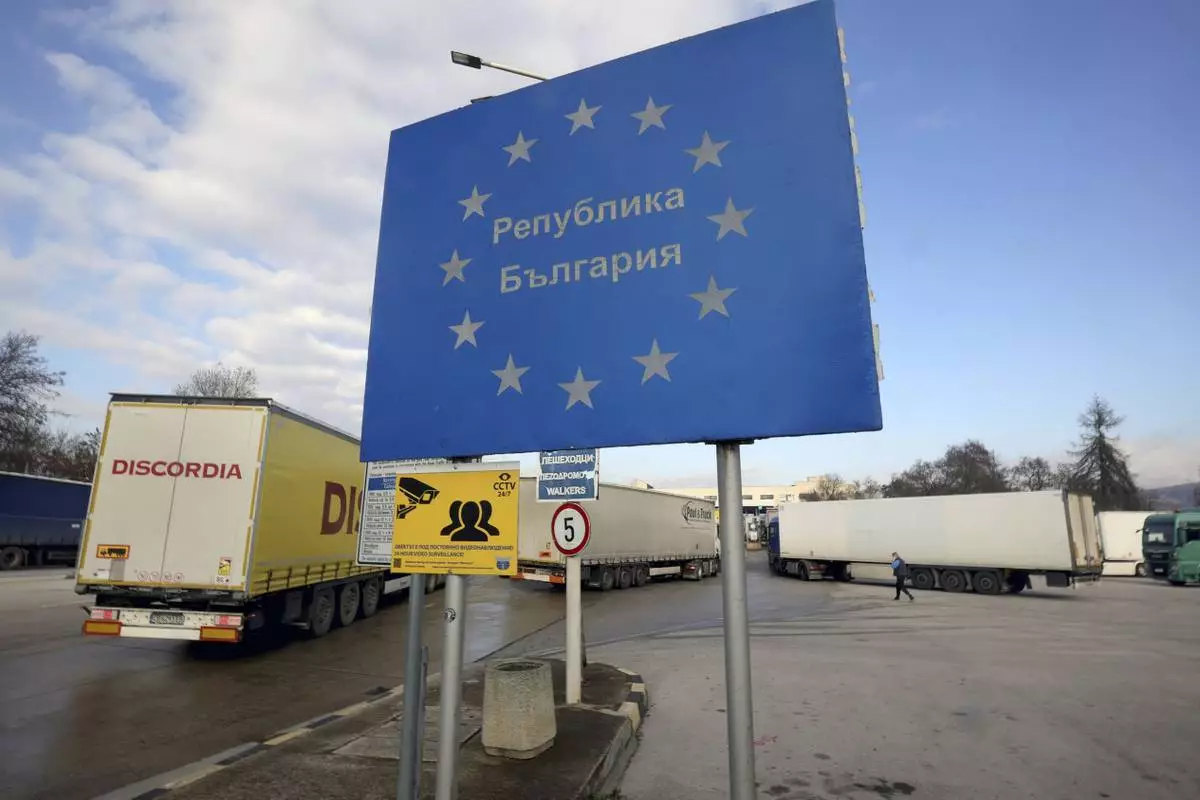
Trucks queue next to a sign reading ''Republic of Bulgaria'', at Bulgarian-Greece border checkpoint Kulata, Bulgaria, Thursday, Dec. 12, 2024. (AP Photo/Valentina Petrova)

Hungary's Interior Minister Sandor Pinter speaks with the media during arrivals for a meeting of EU justice and interior ministers at the European Council building in Brussels, Thursday, Dec. 12, 2024. (AP Photo/Omar Havana)




